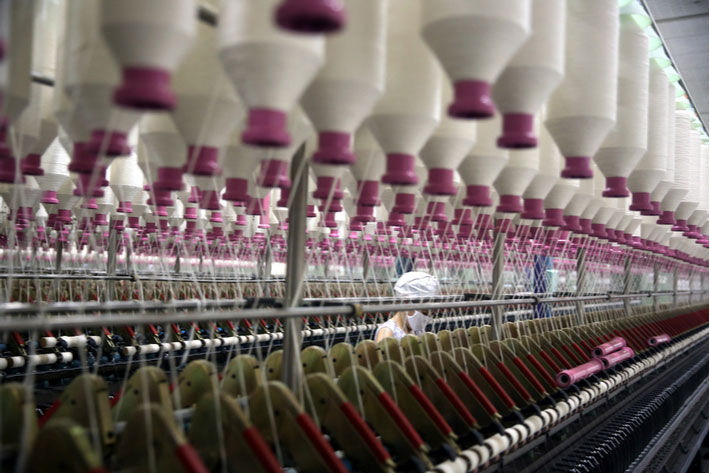

Leading textile manufacturers, such as Super Textile, Libolon, Kingwhale and HerMin, are playing an essential role in promoting a circular economy mindset, TTF said in a press release.
Super Textile Corp. has long developed and continues to create fabrics with recycled components that reduce the impact of waste on the environment. "Our main axes of management are product differentiation, customised service, quality control and sustainable environmental protection," Sally Lo, vice president of Super Textile, explained.
In terms of sustainable product development, the Taipei-based company has cooperated with industry and academia since 1997 to develop recycled fabrics from PET bottles. The company has received the national enterprise environmental protection award and the industrial waste reduction award for its pineapple leaf fibre fabric.
Relying on its rich production experience, Super Textile has worked with local farmers to create a pineapple fiber made from the leaves of pineapple plants. By combining the fibre with polyester, the company has developed a lightweight, easy-to-care-for textile fabric that has an elegant appearance similar to linen.
"The pineapple is one of the most widely planted crops globally," stressed Lo. "In the past, the leaves were treated as waste and buried directly in the files, which easily caused pollution and impacted the quality of subsequent fruit cultivation."
With a solid commitment to sustainable principles, Libolon produces recycled polyester material derived from post-consumer wastes such as plastic bottles and marine litter into mechanical recycled PET or pre-consumer wastes such as fabric wastes as well as discarded polyester fabric.
Libolon has an extensive collection of recycled polyester products in multiple categories for woven and knit fabric that adhere to the international textile standards, according to Steven Su, assistant vice president at Libolon.
With this observation in mind, Libolon has developed the 'Closed Loop Recycling Zero Waste System'. The process involves the conversion of old fabrics from garments and shoes, remnant fabrics and unpacked material into crushed components through a unique 'multicomplex purification process' to create chips/pellets and yarn.
Once finished, the products enter the market, creating a loop matching Libolon's goal of 'Endless Regeneration'. This loop system will certainly reintroduce both products and wastes into a new industrial circuit and offer many benefits for businesses, the environment, and society.
Kingwhale has set clear goals for cutting carbon emissions to protect the environment and promote sustainable development. By setting clear goals for becoming carbon neutral by 2050, Kingwhale has positively impacted the environment and contributed to a more sustainable future.
"That gives us a guideline and goal, starting from how we use our energy, source our energy," James Huang, general manager of Kingwhale, explained while praising the stricter environmental regulations in European countries.
Kingwhale is looking into more sustainable processes and a more sustainable way of making products. To this end, the company believes that it needs to change its business model toward a circular economy.
This should be the future of the Taiwan Textile industry. A circular economy is an economic system in which waste and pollution are eliminated or reduced. Products made from recycled materials are designed to be reused or recycled at the end of their life.
HerMin Textile aims to meet this demand by investing in new technologies and processes that will allow them to produce fabrics more sustainably. One example of this is the company's recycled materials, which have helped reduce factories' waste.
"We're continuously trying to look into innovations, new methods of dyeing products sustainably," Tony Chen, project manager at HerMin Textile, said.
With this observation in mind, HerMin Textile is working on new methods of dyeing and printing fabric that use less water and chemicals. The Taiwan company shows its commitment to becoming more sustainable and responsible by investing in these initiatives.
"I think the future of the textile is to create innovative, comfortable fabrics, but in a sustainable way," remarked Chen. "The main difference between Taiwan and China is the size of the market."
Fibre2Fashion News Desk (RR)